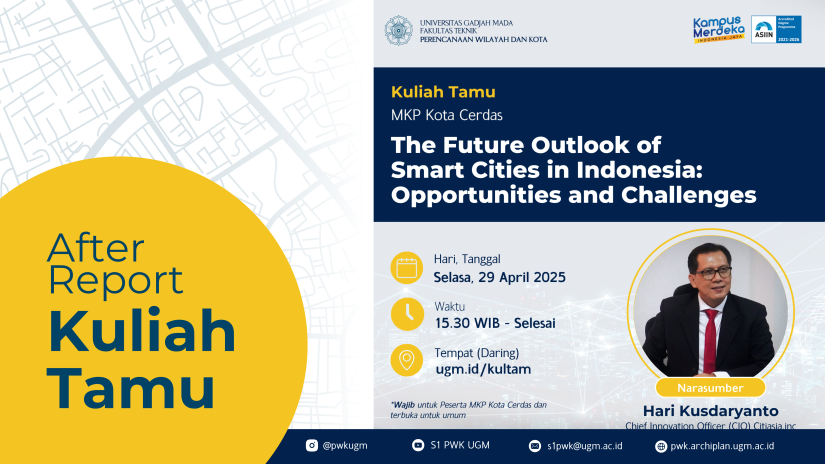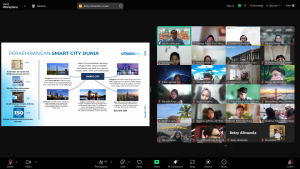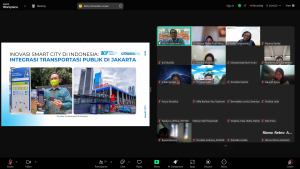
Yogyakarta, April 29, 2025 – The Undergraduate Program in Urban and Regional Planning (PWK) at Universitas Gadjah Mada held a guest lecture on Tuesday, April 29, 2025, titled “The Future Outlook of Smart Cities in Indonesia: Opportunities and Challenges.”
The guest lecture featured Hari Kusdaryanto, Chief Innovation Officer (CIO) of Citiasia Inc., who thoroughly discussed the opportunities and challenges surrounding the implementation of smart city concepts both now and in the future. The event was conducted online and was open to the general public.
The session began with an introduction to the smart city concept. A smart city is an innovative urban model developed in response to various challenges faced by cities. It aims to leverage technology to manage natural, human, and financial resources efficiently and effectively—solving priority issues, improving service quality, and enhancing productivity and competitiveness through integrated and sustainable innovation.
Indonesia declared its commitment to developing 100 Smart Cities during the 2018 ASEAN Summit. According to the IMD Smart City Index 2025, Jakarta, Medan, and Makassar are ranked as the top three smart cities in Indonesia. However, several challenges remain in implementing smart cities, including the mindset and cultureset—where smart cities are often perceived as the responsibility of the communication and information sector alone, rather than requiring multi-sector and multidimensional collaboration (pentahelix). Other challenges include underdeveloped digital transformation, lack of policy synchronization, limited digital literacy and utilization, insufficient sustainable funding, inadequate supporting infrastructure (e.g., internet access), and a lack of system integration.
Looking ahead, policy and governance remain critical issues for smart city development. Key concerns include the weak inclusion of smart city nomenclature in the latest National Medium-Term Development Plan (RPJMN), lack of inter-ministerial policy alignment, and the continued segmentation of smart city efforts within local governments under the communication and information sector. On the flip side, the growing demand for digital talent in Indonesia to support technological innovation—such as AI and smart infrastructure—presents a strong opportunity for smart city advancement.
The theme of this guest lecture aligns with several Sustainable Development Goals (SDGs), including SDG 8 (Decent Work and Economic Growth), SDG 9 (Industry, Innovation, and Infrastructure), SDG 11 (Sustainable Cities and Communities), and SDG 17 (Partnerships for the Goals).
The session was well-received by the participants, who actively posed questions regarding the smart city concept. The event concluded with a powerful closing statement from the speaker:
“A smart city isn’t just about the excellence and use of hardware and software—it’s about heartware. You and all of us are part of the community, and the future cannot be reversed. We now have digital natives with greater sensitivity and hardware fluency than previous generations.” – Hari Kusdaryanto, 2025


